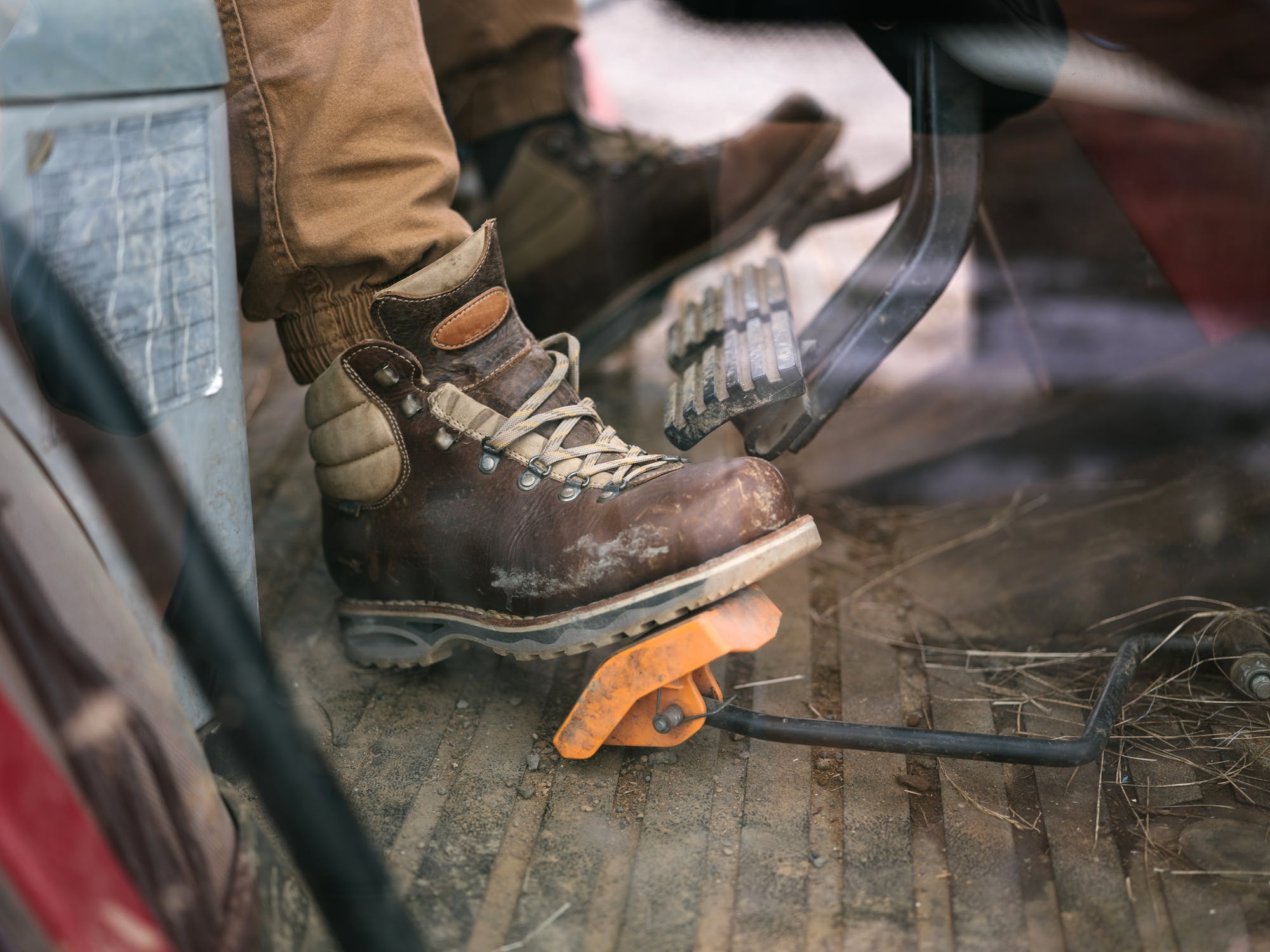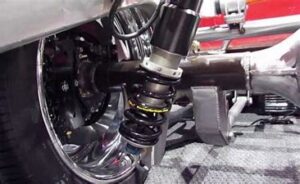Having a brake pedal that goes down when your car’s engine is running is an undesirable situation. Such a condition won’t let you apply brakes properly which is dangerous for both you and your car.
There are several causes which lead to the condition, brake pedal goes to floor when engine running. In this article, we will be going through each of the causes one by one, so read on!
Table of Contents
Reasons Why Brake Pedal Goes To Floor When Engine Running
Several reasons lead to the condition, but the most important cause is the loss of brake fluid. If there is some sort of leak in the brake fluid line or any braking system component your brake pedal goes to floor when engine running. Some other reasons why this condition occurs are vacuum leakage in the brake booster, malfunctioning master cylinder, etc. Let’s now discuss each of them one by one.
1. Brake Line Or Brake Caliper Leaks
The usual cause of brake pedal goes to floor when engine running is brake fluid leaks from the brake fluid line or calipers. When there is a lack of fluid in the line, the braking system won’t be able to provide enough braking power when needed.
When there is a brake fluid leak, the brake pedal will have no pressure coming to it when you press the brakes and hence the pedal will simply go down.
2. Malfunctioning Master Cylinder
When you press the brake pedal, the brake cylinder compresses, thus increasing the pressure in the brake lines. This makes the brake fluid move to the brake caliper with increased pressure. Thus the brake fluid pressure is increased in the master cylinder which is what results in the stopping or slowing down of your car when you step on the brake pedal.
However, if the master cylinder is not working, the brake fluid pressure is reduced or worse. Thus your brakes will appear spongy or go down when the engine is running. The Master Cylinder is covered with rubber seals that prevent it from leaking brake fluid. When these seals are damaged, the brake fluid leaks resulting in spongy brakes.

3. Air In The Brake Line
When there is air trapped in the brake lines your brake pedal goes to floor when engine running. This mostly happens when the brakes are not bled after replacing the master cylinder.
When there is air trapped inside the brake lines, you will be provided with a feeling of sponginess than the firmness you should get when brakes are applied.
4. Malfunctioning Brake Booster
The Brake Booster is responsible for delivering the braking power when you depress the brake pedal. When it is malfunctioning, you will start observing that your vehicle’s stopping distance has increased. This is because this part fails to provide enough power boosting to help your car stop normally.
5. Your Style Of Driving
The style of driving you have plays a major role in creating spongy brakes. If you are someone who frequently uses your brakes, this results in the brake fluid getting hot affecting its designed density, that is, the fluid becomes thinner.
The pressure you have to apply increases as the brake fluid gets thinner. This condition will make you feel like your brake pedal goes to floor when engine running as it won’t be able to produce the required power to effectively stop the vehicle.
Possible Solutions For This Condition
The condition of brakes feeling spongy when the engine is running is not a very difficult situation to be in. This can be solved on your own in most situations since the causes are mostly obvious.
1. Check the Brake Fluid Level In The Can
From what you have read above, it should be now obvious that the most common cause for this condition is brake fluid leakage. So the first thing you should check should be the brake fluid level. If it is appearing to be lower than the accepted level, you can conclude that there is brake fluid leak somewhere which you should find next.
2. Check the Brake Lines
Check the brake lines for any cuts or holes which lets brake fluid leak. You have to check the four wheels of your car for oil residues by removing the tires. If you notice oil residue anywhere, you can conclude that there is brake fluid leakage so get the brake fluid line replaced by your trusted mechanic.
3. Check The Brake Calipers
If you couldn’t find any leaks, check the brake calipers of each wheel next. The wheels of your vehicle have to be removed to locate the calipers. Once you locate them, check if there are any brake fluid residues around the calipers and the bleeder screws. If you are not very used to checking or repairing car parts, taking your car to a mechanic is recommended.
4. Check The Brake Master Cylinder
If you notice any leaks in your braking system, you can conclude that the seals of the brake master cylinder are worn out. If you notice leakage, avoid driving your vehicle until the brake master cylinder is replaced by a trusted mechanic.

How Much Will It Cost To Repair A Brake System?
The repair of the brake system may vary from vehicle to vehicle. It will also depend on the depth of the problem in your braking system and the difficulty of the repair. On average, it will cost you between $200-$300. If the damage to your braking system is serious, the cost can double. If a full brake job is needed by your car including the replacement of parts like cylinders, pads, drums, calipers, and rotors, this can cost you up to $750 or more.
Thus it is always better to check your brakes regularly to avoid having to do expensive maintenance later.
Frequnetly Asked Questions :
So, here are some of the frequnetly Asked Questions about why does my brake pedal goto the floor when I start the engine,What would be the cause of a dropping brake pedal with no fluid loss from the system ,and what are the symptoms, etc-
Why Does My Brake Pedal Go To The Floor When I Start The Engine?
When the engine is running, and the brake pedal is pushed to the floor, the first thing which stuck is a brake fluid leak. The pressure in the brake system leaks out through any of the brakes’ outflows and you should verify also.
What Would Be The Cause Of A Dropping Brake Pedal With No Fluid Loss From The System?
The cause of a sinking pedal with no external leakage is a faulty brake master cylinder , Were the brakes hot, we might consider boiling fluid due to moisture contamination or friction material.
What Are the 4 Main Problems If The Brake Pedal Goes To The Floor?
3 main problems if the brake Pedal goes to to the floor –
1. You Have Air in the Brake Lines.
2. You Have a Brake Fluid Leak.
3. Your Brake Booster Is Failing or Is Bad and your master cylinder.
What Are The Symptoms Of A Faulty Brake Booster?
Increased braking distance is a clear sign of failing brake boosters. Warning lights, such as the ABS, will activate if you have an electronic brake booster system failure and Fluid leakage is typical .
Conclusion
Having spongy brakes is a very undesirable condition as they will lead to not letting you stop it slow down the vehicle when needed.
If you feel that your brake pedal goes down when the engine is running, checking for brake fluid leaks is the first thing you should do as this is the most common reason for such a problem. Hope you found this article useful to know about the different causes and solutions of such a situation.



